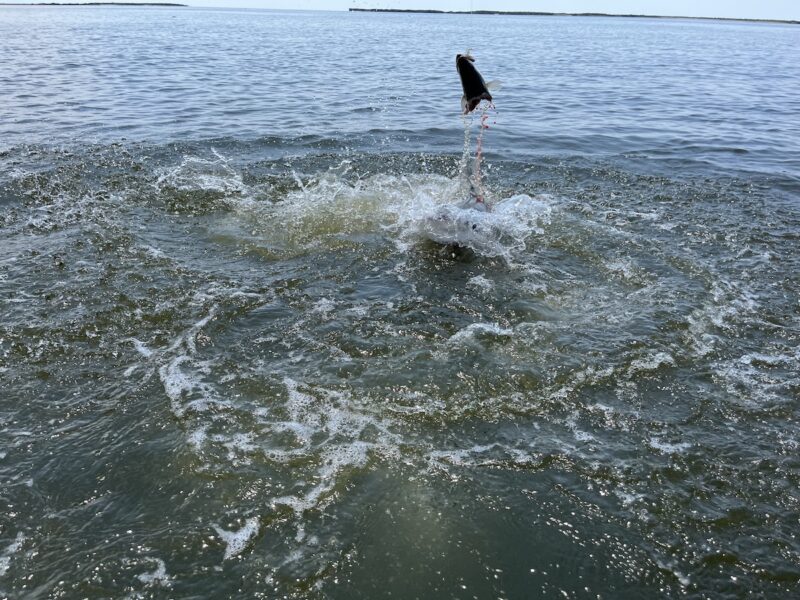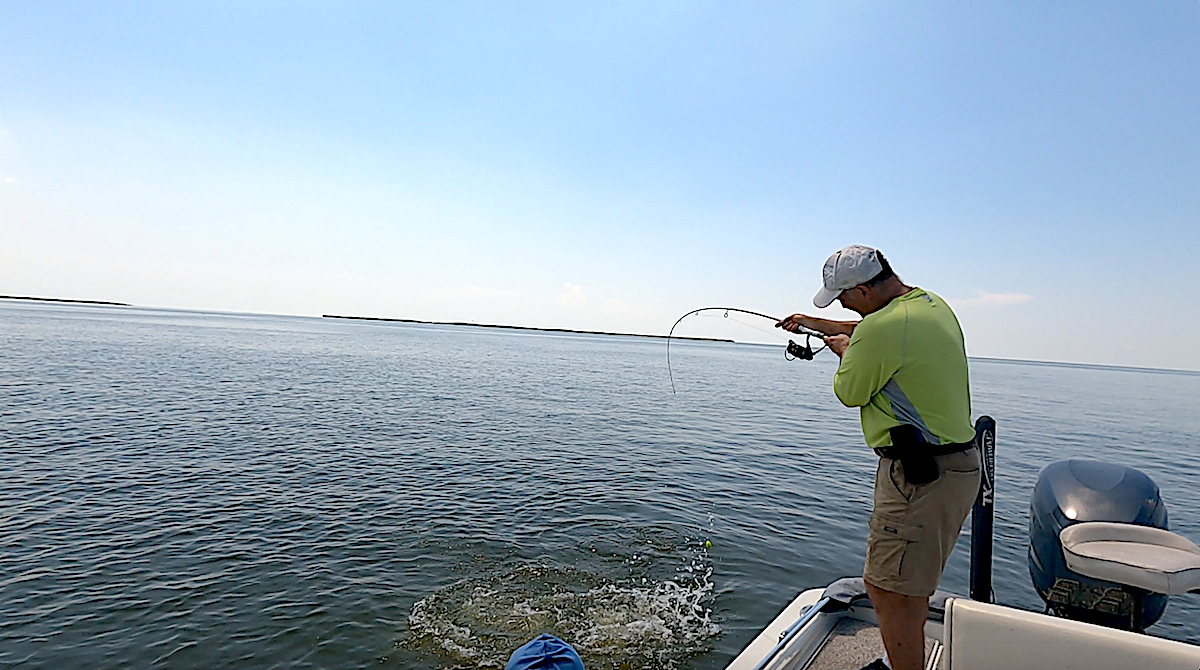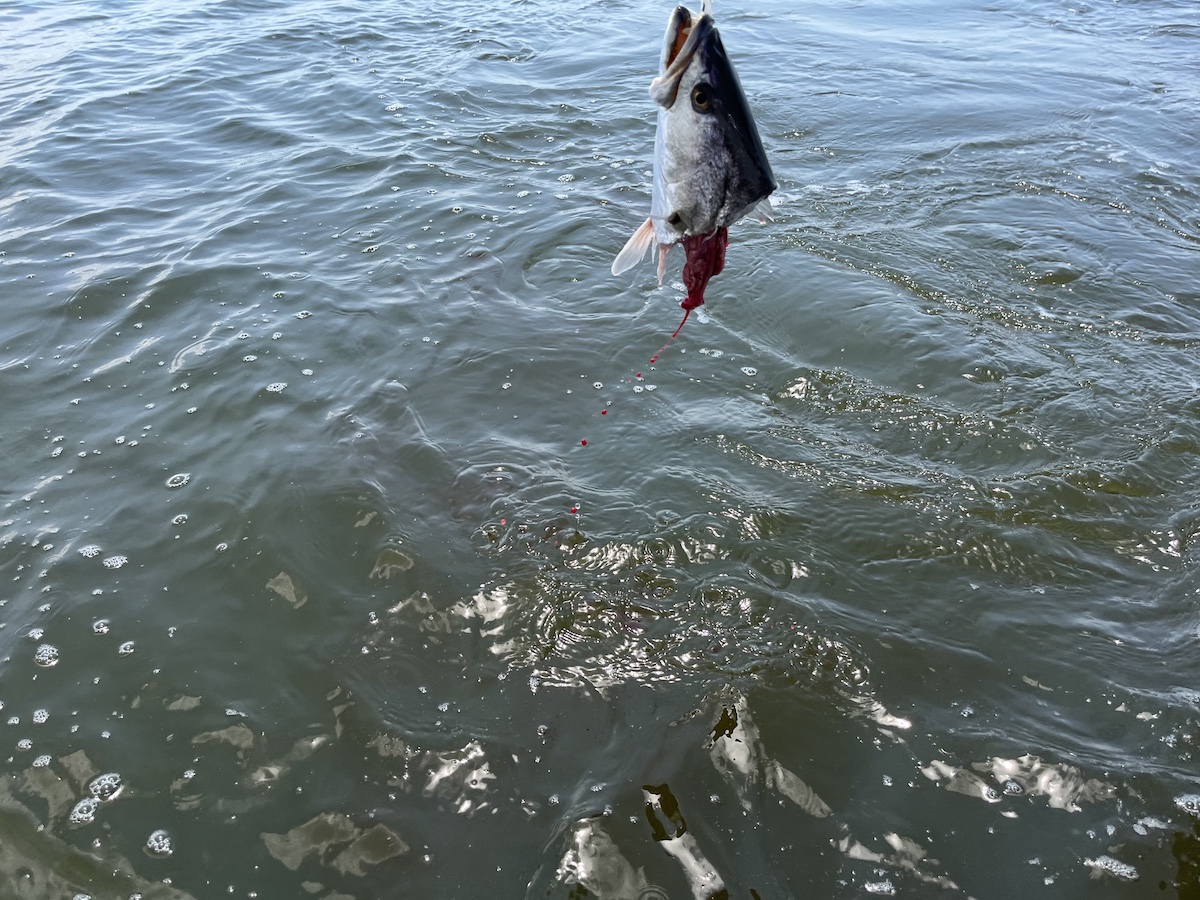Keith Lusher 09.23.24

While recreational anglers wait patiently for the H.R. 4051 AKA the SHARKED Act to move past the Senate and become law, incidents of shark depredation are becoming more and more common.
Living in Southeast, LA, I’m no stranger to both offshore fishing and inshore fishing. In the past, I’ve experienced shark depredation only in offshore waters in the Gulf of Mexico. However, on my latest fishing trip to Four Bayou in Plaquemines Parish, I witnessed something that I’ve never seen before – inshore sharks.
Nick Liebel of Belle Chasse, LA, has been fishing the area for over 30 years and said he’s never seen the sharks so thick as he’s seeing today. “It’s bad – all summer it’s been like this,” he said.
We were fishing a set of old camp pilings when our trip was interrupted by a school of sharks that honed in on our catch. The sharks were so bad that we were forced to move because we were losing so many trout to the predators.


Liebel said he’s seen so many sharks chase down his trout, that he’s learned how to tell when a shark is chasing the fish. “You can tell when there’s a shark behind the fish because the trout will swim towards me really fast and sometimes jump out of the water to get away from the shark,” he said. On an average trip, Liebel said he’s losing one out of three fish to the blacktips that have invaded the area. “Oh, we are losing a ton of specks to sharks out here,” he said.


While the SHARKED Act is being held up in the Senate, newly installed Secretary of the Louisiana Department of Wildlife and Fisheries, Madison Sheahan, isn’t waiting.
Madison Sheahan sent a letter to the Louisiana Wildlife and Fisheries Commissioners asking to expand recreational and commercial opportunities for sharks.


In the letter, Sheahan suggests getting rid of the recreational bag limits for bull sharks and black tip sharks and recommends increasing the allowable daily commercial harvest from 45 to 55 sharks per trip.
“As the species quickly adapts and rebuilds due to successful collaborative conservation efforts, we are obligated to the sportsmen of Louisiana to exercise adaptive management in order to mitigate user conflict and maximize opportunity,” said Sheahan. “The Blacktip and Bull Shark numbers are now healthy enough to warrant additional harvest; doing so would further support our management efforts for numerous species sought after by both commercial and recreational fishermen.”
I applaud Sheahan on her efforts to reduce shark depredation. I encourage other states where sharks are affecting recreational fishing to take action.
Meanwhile, The American Sportfishing Association (ASA) remains hopeful that the SHARKED Act will be signed into law by January of 2025 and recommends a four-tier approach to addressing the problem. “We are optimistic the Senate will follow their House counterparts and pass the SHARKED Act before the end of the 118th Congress. In doing so, we recommend a four-tier approach to better address shark depredation and angler interactions: educating anglers on how to avoid and respond to shark interactions, a wholistic management approach that includes federal and state fisheries managers, thoughtful policy proposals that lessen shark-human engagement, and continued research and understanding around the occurrence of conflicts between sharks and fishing vessels.

